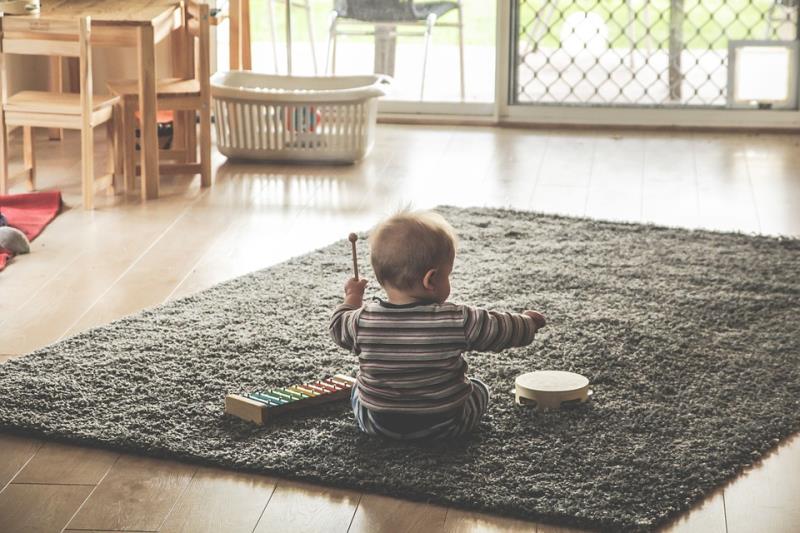Children are not taught to enjoy music; they just naturally gravitate towards it. Whether it?s enjoying toys that make sounds, bouncing while listening to a song, or clapping to the music, it?s a universal reaction. There smiles and obvious enjoyment for music is enough to choose to make music a part of your child?s life, but there are other positives to including music in your child?s development. Music has shown improvements in brain development, can increase academic achievements, improve social skills, enhance their creativity, and allow them some fun.

Brain Development
The actual act of learning an instrument is obviously great for brain development. Learning music is basically like learning another language and it helps to kick start the brain in deciphering sounds. The brain processes better when it?s exercised, and teaching a child an instrument forces them to engage in learning, not just listening to the music. Music exercise for the brain helps temporal reasoning and actually creates new pathways in the brain. For young children that aren?t at the age of instrumental learning, listening to music is still beneficial to development. The key to building understanding, building passageways, and providing exercise in musical understanding is to have your kiddos listen to music with complexity.
Academics
There is a link between music and high academic achievement. This doesn?t mean that you can play Mozart for your child and they will be a genius, but there is a link between complex music and better brain function that we discussed earlier ? and classical music is more complex than the average song on the radio. Children that are exposed music and introduced to music classes have been shown to score higher in reading and math than other students. SAT scores of students who took part in music instruction in some way surpassed students that didn?t. Each child is different, but the added perks to brain development can lead to academic achievements.
Social Skills
Introducing children into soccer, choir, or Girl Scouts is not just about learning to dribble, sing, or be involved in community service. Introducing children into clubs is also a way to socialize your children and teach them social interaction. If your child grows an interest in music you are socializing them with like-minded children all learning the same things, working off of one another, and learning from them. Music is a language that is universal and it opens up and understanding of a medium that can be translated across the world. The culture of music can help even the most introverted and shy child to come out of their shell if they are more comfortable communicating through music.
Enhancing Creativity
Early childhood education in music can set the stage for the elements positively affected by music education. Not only does music help brain development, academic achievement, and social interactions, it also enhances their creativity. Music is obviously a creative medium, and the things that children learn about music can be translated into other mediums ? it just builds the creative pathways. Whether it?s playing music for them, encouraging singing, or giving them musical toys, you?re building their creative knowledge, interest, and ability. For the creative souls, even those not based in music, having a musical childhood can only help.
Fun
Music is fun ? which is why so many children love listening to music, bouncing around to the beat, and clapping their hands. They understand it and can see others reacting to it in the same way. Enjoying music is to understand it and children love the aspect of understanding the sounds they hear in the same way that others do. Babies love lullabies for a reason and introducing many different types of music in their life is fun for them. Whether it?s relaxing to a lullaby, singing to nursery rhymes in the car, or making sounds with a musical toy, it?s easy to see that children love music.
Kiddos love music for the same reason that the rest of us do. Luckily, that love of music can benefit them in many different ways. Brain development, academic achievement, social interaction, creativity, and fun are all improved by including music into your child?s life. Utilizing music doesn?t mean that you only let them listen to Bach, that you start violin lessons as soon as they can hold a bow, or that you start planning their musical fame immediately, it just means that music is a great tool for them through their lives.
Chelsy is a writer from Montana who is now living in beautiful Boise, Idaho. She graduated with her journalism degree from the University of Montana in 2012. She enjoys spending time in her garden, reading with a glass of wine, and throwing a Frisbee for her dog, Titan. Follow her on Twitter!



